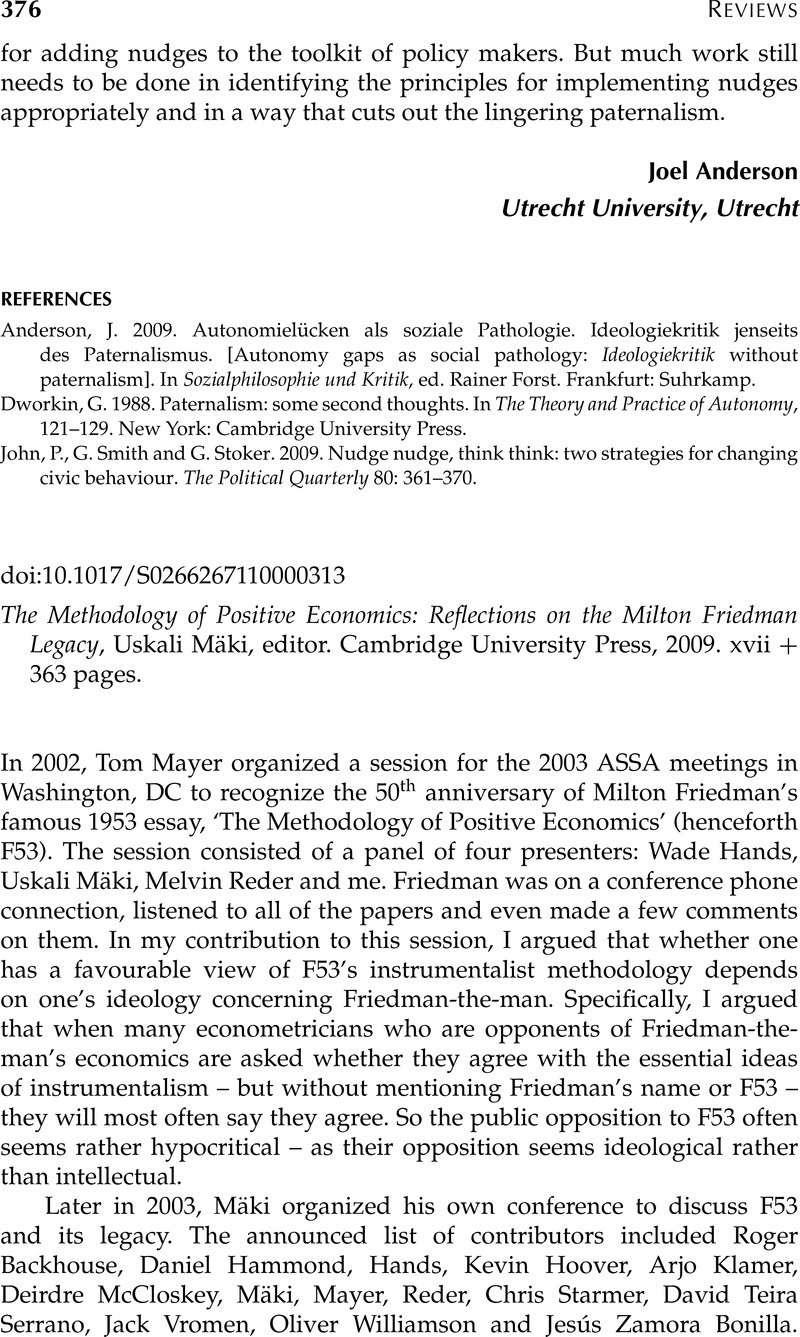Crossref Citations
This article has been cited by the following publications. This list is generated based on data provided by Crossref.
Mariyani-Squire, Edward
2017.
Critical reflections on a realist interpretation of Friedman’s ‘Methodology of Positive Economics’.
Journal of Economic Methodology,
Vol. 24,
Issue. 1,
p.
69.
Boland, Lawrence A.
2017.
Encouraging Openness.
Vol. 325,
Issue. ,
p.
429.
Galbács, Péter
2018.
A közgazdaságtan felszabadítása. A neoklasszikus ortodoxia és az intézményi közgazdaságtan közötti ellentét néhány módszertani kérdése.
Közgazdasági Szemle,
Vol. 65,
Issue. 01,
p.
44.
Hoover, Kevin D.
2018.
Karl Brunner’s Philosophy of Science: Macroeconomics through the Lens of Logical Empiricism.
SSRN Electronic Journal ,
Boland, Lawrence
2019.
The Impact of Critical Rationalism.
p.
19.
Galbács, Peter
2020.
The Friedman-Lucas Transition in Macroeconomics.
p.
163.
Galbács, Peter
2020.
The Friedman-Lucas Transition in Macroeconomics.
p.
253.
Galbács, Peter
2020.
The Friedman-Lucas Transition in Macroeconomics.
p.
337.
Galbács, Peter
2020.
The Friedman-Lucas Transition in Macroeconomics.
p.
1.
Galbács, Peter
2021.
A con artist or the father of revolutionary ideas? James Forder’s recent book on Milton Friedman.
Journal of Economic Methodology,
Vol. 28,
Issue. 2,
p.
250.



